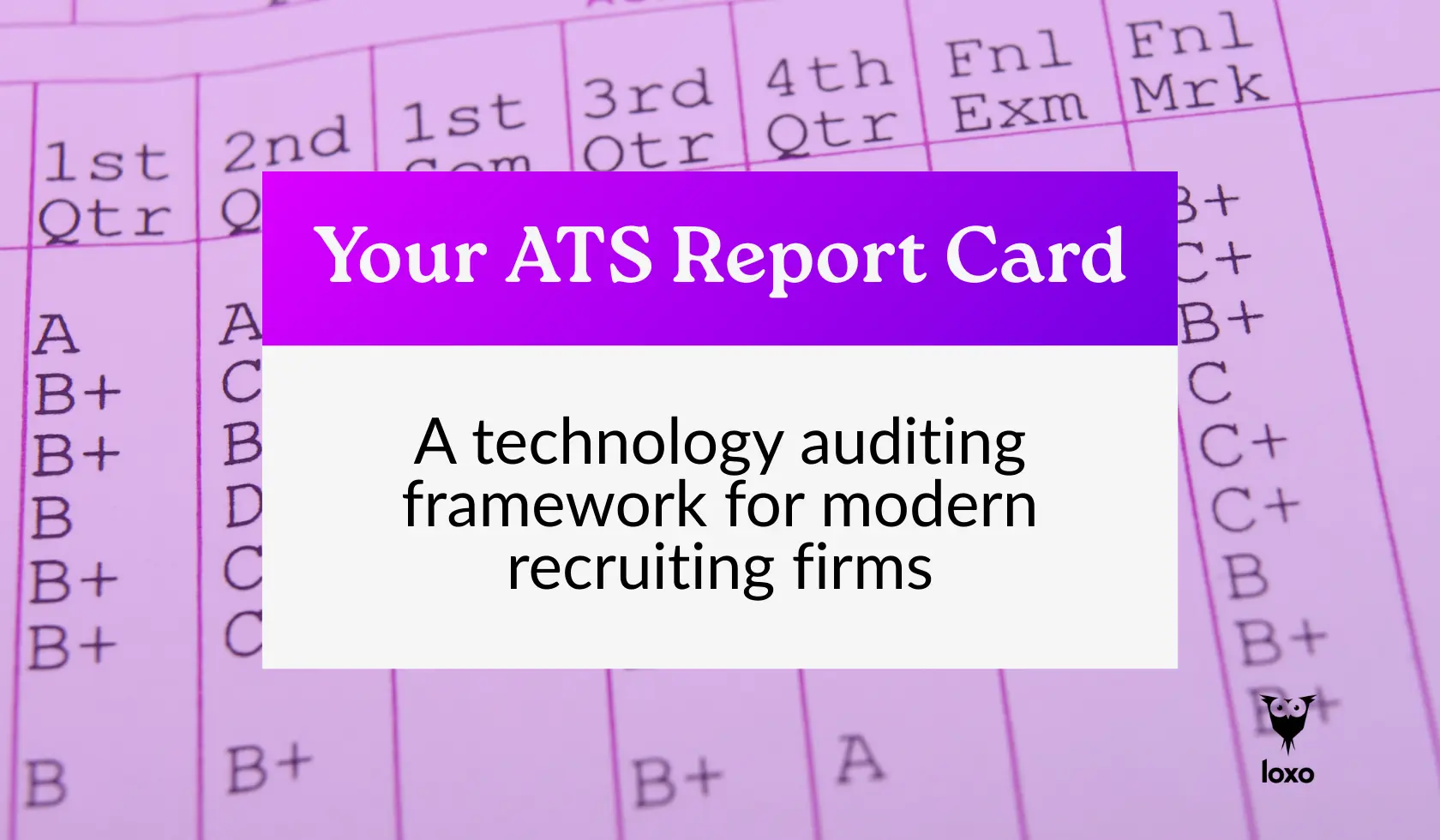The Ultimate Boolean Guide for Recruiters

A strong Boolean guide, when used intelligently, can be one of the most powerful assets within a Recruiter's toolbox. The ability to directly dictate through strings and operators the exact candidate profile you are looking to source can be a massive competitive advantage for recruiters.
Recruitment has become far more complex over the years, and, consequently, the stakes have become much higher. Now more than ever is it essential to hire the right teammates or you may cost your company big time. The good news, however, is that (some) recruitment software is keeping up with the complexity.
One of these such innovations? Boolean operators. The power of Boolean operators will help you widen, narrow, or define your search.
What Are Boolean Operators?
Have you ever searched for a coffee shop on Google and gotten results with locations ranging from Mississippi all the way to Kansas? Sigh.
It's obvious that you're looking to find a coffee shop close to your location — so why do all of these other shops across the country show up? The reality is, search engines can provide too narrow or too broad of results based on the information you put into them. The same goes for sourcing across platforms and is why it is essential to use Boolean operators to ensure the cleanest and most effective results.
So what exactly are Boolean operators? This is a term that you may have once heard in your academic or professional life but has since then flown as far away from your mind as possible. Boolean operators or connectors are special words or symbols that you can use to add context to your search.
A Few Examples Of Boolean Operators In Use
Boolean operators are simple; they include words like AND, OR, NOT, and symbols such as asterisks and parenthesis. And they come in multiple types.
The first thing you should notice is that Boolean operators are all used in uppercase in theory, but in Loxo, you can use them whichever way you want. These words are among the first words you learn, maybe from your parents. But how are these used in recruiting software such as Loxo, and how do they make your work easier?
An excellent point to start is their general meanings:
AND
The symbol of AND is +. If you are ever in a situation where you need both words to be in your search, AND is the Boolean connector for you. For example, let's say that you want to recruit a software engineer who is also an accountant. If you input "software engineer "AND account* in your Loxo field, you will get all results that have software engineering accounting, accountant, and accounts. The more you add AND to your search, the fewer results Loxo will give you back.
OR
OR does not have a symbol in Boolean operation. Whenever you are looking for results in your Loxo search with at least one of the words mentioned, OR is the Boolean connector to use. If you want a specialist in Software engineering or Computer science, you can input ("Computer Science" OR "Software Engineering"). The results will bring you all applicants with software engineering and computer science. The OR operator in Loxo will bring you more results the more you use it. For the best experience using an OR operator, always use it in brackets.
NOT
Not is an exclusive Boolean connector. Remember when we mentioned coffee shops in Mississippi and Kansas. Its symbol is -. If you want to recruit an IT specialist who is not a software engineer, the NOT operator will work for you. You can punch in "IT specialist" NOT "Software Engineer," and you will get all profiles with IT specialists but exclude those with a software engineer.
NEAR
The near operator enables you to bring in results that are used with words close to each other. If you want results of profiles where the words doctorate and Software engineer are used in proximity, the near operator has you covered. All you have to do is to punch in the words "Software engineer" NEAR doctorate, and all profiles that match that description will be within your reach.
Boolean Guide for Loxo
As we've seen above, using Boolean operators is an easy concept to grasp with powerful implications for Recruiters. We have also learned that Boolean operators are a must-have in your talent sourcing strategy. There are very few recruitment software out there that enable you to take advantage of Boolean operations the way that Loxo does. After all, it's our mission to help you run a successful firm. These are a few examples that can help you navigate your searches within the Loxo platform.
1. Creating Emphasis in your search
You can create emphasis in your Loxo search by using the ^ symbol. For example, if you consider the doctorate to be twice as important as computer science in your search, you can input "computer science" and "doctorate" ^2
2. Finding the stem of a root or a word
The asterisk helps you search for all results of a stem word. Let's say you want accounts, accountants, and accounting in your Loxo search; this is what you input account*.
3. Using the NOT operator
The not operator can help you exclude results you may not want in your Loxo search. You use it in upper case followed by a field of people you have tagged. For example, if you have people you have tagged "do not contact" in your database and you want to exclude them, you're NOT string will resemble something such as NOT_tag names: do not contact
4. Finding the people you had no contact with
If you want to search for entities in your database you are yet to have contact with, enter NOT_exists_:last_contacted_at
5. Finding all the companies blocked in your database
To find all companies that are blocked in your database, enter blocked: true
6. Searching for all people that have no global status
To search for people who have no status in your database, enter NOT _exists_:global_status_id on the Loxo field.These are just a few examples of how Boolean operators can aid you narrow or broaden your search for recruitments in Loxo.
What Makes Our Platform Different?
There are many platforms that offer Boolean operators, but what makes Loxo different? Loxo's Boolean operations are one of its greatest strengths and rightly so. This is because it has:The Wildcard Operation "*."Loxo is the only recruiting software that interprets the asterisk operation. You don't get to use the * on other platforms, which subsequently means you can't use word stems in your searches on other platforms.
The Stop Word Operation
Loxo is the only recruiting software that accepts stop words such as IN and WITH. The search engines of both Google and Bing do not offer this functionality. Other than stop words, there is no other operator than can refine your search from 3000 results to just 42. For example, let's say that you want to search for software engineers with scala in their profiles. In other places, you will have to search for just scala. With Loxo, you can punch in "in scala" OR "with scala" and get 90% fewer results.
Case Sensibility
Other platforms require all your Boolean operators to be in uppercase, which can be cumbersome. Loxo, on the other hand, only requires the NOT operator to be in uppercase.
Broader Connector Compatibility
Loxo allows your Boolean strings to be broader and allows more symbols such as ^ and ~ that are incompatible in competing platforms.
The Takeaway
Boolean operators are a blessing for any recruiter who wants to make their recruiting processes and sourcing less cumbersome.
Who We Are
Loxo is a Talent Intelligence platform and a global leader artificial intelligence recruitment automation software that has spent its last few years making the recruitment issues of the small, medium, and big firms a thing of the past. For more information or if you found this boolean guide helpful and would like to see more content like this, claim a free account or you can request an overview of the platform!
P.S: if you don't feel like learning all these complex operators, we've built a tool that allows you to look for candidates using plain english. Check it out here.
Become a hiring machine
Ready to see for yourself how Loxo can transform your recruitment workflow and make you more efficient than ever before? We thought you might be.



.webp)